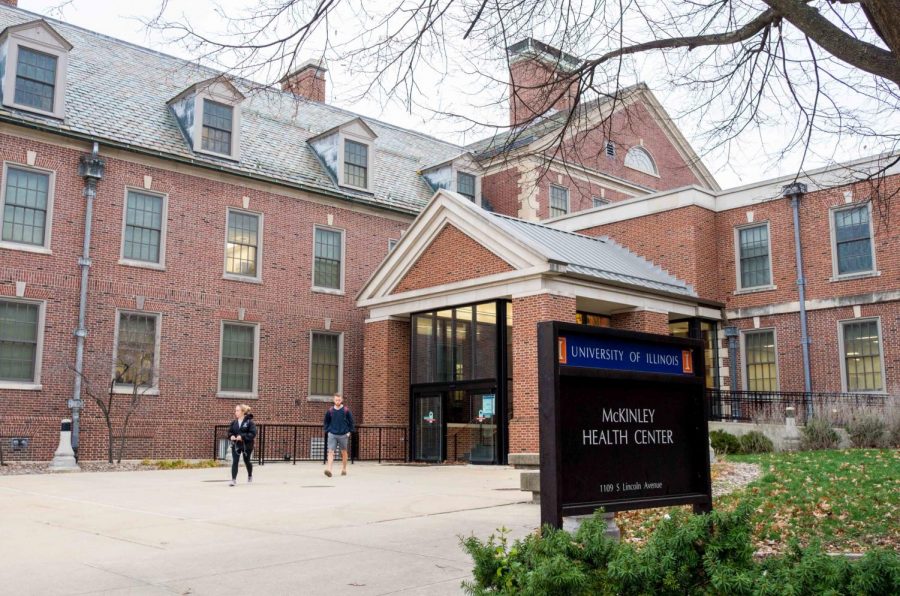On-Campus counseling frequency increases as finals draw near
The exterior of McKinley Health Center located at 1109 S. Lincoln Avenue on Dec. 4, 2017.
May 2, 2019
A Massmail sent out by Student Affairs last Tuesday informed students that there are plenty of resources for them to utilize as the year wraps up with finals right around the corner.
“This is a stressful time for many of our students,” the Massmail stated. “The usual tensions, such as personal and family stress, can be amplified at the end of the semester with final exams, deadlines for projects and papers, and even returning home for the break.”
The letter stated that students showing signs of anxiety or depression during this time may need encouragement to seek assistance.
The University’s Counseling Center has around 30 trained counselors that students can make an appointment with all year round. However, as the deadlines for the semester start to get closer and the workload gets a bit heavier, the Counseling Center will start to see more people, said Nichole Evans, media communications coordinator for the Counseling Center.
“I wouldn’t say we have a tremendous amount of students who are seeking services at the end of a semester compared to any other part of the semester,” Evans said. “What we do see is increased walk-ins, like we will see the increased number of people’s advisors bringing them over, things like that.”
Get The Daily Illini in your inbox!
Evans said increased walk-ins can be due to bad news such as an unexpected poor grade or finding out that a student may not graduate in the time as planned. She also said it’s important that students remember to take care of themselves during stressful times, such as finals.
“Really the whole thing that we try to emphasize is even though things are really busy right now, you still need to take care of yourself, and I think students forget that sometimes,” Evans said.
She said sometimes students will come into the Counseling Center without having slept for up to three days, which affects their focus and attention.
Going 24 to 36 hours without sleep can cause someone’s focus to be the same as if he or she were to be legally intoxicated, Evans said.
“The campus is designed to have all these different resources to support people,” Evans said. “Depending on whatever the situation is, we can find help for you so that you don’t have to go through it alone. People are here to help and people want to help and you might as well take advantage of that if you’re struggling.”
Another resource available to students all year round is the Student Assistance Center. With five assistant deans and an associate dean at the office, students can reach out to SAC when faced with academic difficulty due to mental or physical reasons or if they just do not know where else to go.
Rhonda Kirts, associate dean of students, oversees SAC for students who come in for a variety of reasons. She said for the most part, students who are really stressed tend to come in when midterms start to come up, as students start to make decisions on whether or not they are staying in their courses.
“The thing with finals that I would recommend is we want people to get a lot of rest and eat well,” Kirts said.
Kirts also said that she recommends having supportive friends to remind and back up students if they have an early morning exam they are prone to sleep through.
“Every semester we have several folks that do sleep through exams and that can be very detrimental and (can cause) stress and anxiety,” Kirts said.
Kirts said double checking where and when all final exams are would help alleviate a lot of stress.
If a student were to come into SAC, deans can act as a referral to the counseling center or to an outside provider, contact students’ instructors or colleges, and they will also follow up with students days or weeks after they first come in.
Evans said sometimes it’s nice for students to just be able to talk to someone about problems they might be having.
“You can get so into your head if you’re having issues that sometimes just sitting down with someone who’s trained to listen to you and kind of ask questions can help you find out solutions that you might not have noticed at first,” Evans said.







